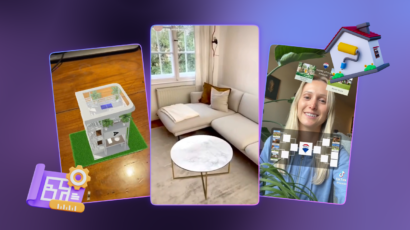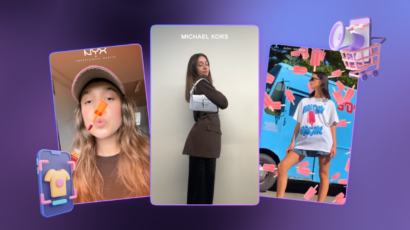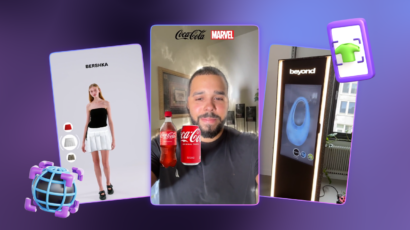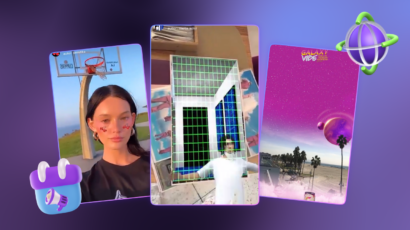Buying properties is an investment, not shopping. It’s an extremely personal and emotional decision. So, people do need time to get informed decisions and you do need effort to make them interested in your brand.
Marketing in the real estate sector can be quite a tough nut to crack.
Where is the problem hiding out?
Traditional marketing methods are having a hard time keeping up with changing consumer expectations and sales that aren’t going anywhere. Plain listings and not much interaction are leaving clients annoyed. Unexciting property listings, coupled with minimal interaction, don’t grab attention or spark creativity. This situation forces agencies to search desperately for fresh and inventive ways to stand out from the competition.
Agencies are constantly grappling with the inefficiencies of traditional methods. From low engagement rates to static listings that fail to capture attention, the challenges are real and pressing. It’s no wonder that 72% of these buyers crave interactive experiences, as revealed by the National Association of Realtors. With competition heating up, agencies are left scrambling for innovative solutions to grab attention and make their mark.
Here comes the Augmented Reality
Augmented Reality’s opportunities are limitless for the real estate market. It establishes the rules of games, and the industry should be prepared to catch up with new trends.
AR is literally a silver lining on the horizon. It is poised to transform the landscape, offering interactive experiences that captivate audiences, attract qualified buyers, and provide measurable ROI.
How to shake things up with AR?
Augmented reality benefits real estate in both the local market and internationally. Clients are better engaged, and an engaged shopper is more likely to become a buying customer. This tech is a powerful tool that can jazz up your properties and make them stand out in the market.
AR to transform your brand:
- Interactive Facades – AR can overlay cool info or stories onto building facades, making them more interesting and engaging for passersby.
- AR Showrooms – Bye to boring property viewings! While virtual showcasing is cool and convenient, you might find it’s missing that personal touch. That’s where AR comes in, offering tailor-made and personalized experiences for potential buyers. Potential tenants can check out their dream space virtually. Customizing layouts and designs, makes the experience more personal and fun.
- AR Wayfinding & Navigation – Big properties can be confusing to navigate. AR can help with that. AR wayfinding and navigation ensure seamless visitor experiences, guiding them effortlessly through complex properties.
- AR Marketing Apps – AR-enabled real estate applications are a powerful marketing tool. When you show newly added properties to people regularly, they are more motivated to invest and buy. Offer exclusive content and interactive experiences like virtual tours or sneak peeks behind the scenes. It’s a great way to build loyalty and keep people engaged with your brand.
Stats from AR Marketing Studies prove its effectiveness, showing that AR experiences can raise engagement by a 200%. By using AR, agencies can grab potential buyers’ attention in ways traditional methods can’t match. So, why stick to the same old marketing tactics?
By facilitating agencies in targeting and attracting qualified leads more effectively, AR ensures that every interaction counts. With AR at the forefront of their marketing strategies, real estate agencies can navigate the competitive landscape with confidence, armed with the tools to engage, captivate, and convert like never before. Through AR, buyers can engage in virtual property tours, immersing themselves in their dream homes and visualizing their future in a tangible manner. This immersive approach doesn’t merely pique interest; it cultivates stronger connections between buyers and properties, heightening enthusiasm and desire. Moreover, AR emphasizes quality over quantity, enabling agencies to deliver personalized and impactful experiences that leave a lasting impression on potential buyers.







